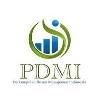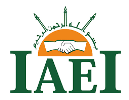The Influence of Public Asset Management Effectiveness, Digitalization and Transparency on Fiscal Sustainability: An International Literature Review
Abstract
This study aims to analyze the influence of public asset management effectiveness, digitalization, and fiscal transparency on fiscal sustainability through an international literature review. Employing a Systematic Literature Review (SLR) and bibliometric analysis using VOSviewer and Harzing’s Publish or Perish software, this research examines 56 publications from 2015 to 2025. The findings reveal that each variable has a significant positive impact on fiscal sustainability. More importantly, the integration of all three creates synergistic effects that enhance fiscal efficiency, accountability, and predictive budgeting capacity. Country cases such as South Korea, Estonia, and Indonesia illustrate that the success of reform depends on institutional readiness, digital system interoperability, and strong political commitment to transparency. This study contributes to strengthening tech-enabled fiscal governance and opens new pathways for sustainable fiscal policy research, particularly in developing countries.
Keywords: Digitalization, Fiscal Sustainability, Fiscal Transparency, Public Asset Management, Public Financial Governance.Full Text:
PDFReferences
IMF. (2024). Fiscal Monitor 2024: Balancing Fiscal Risks and Public Investment. Washington DC: International Monetary Fund.
IMF. (2021). Managing Public Wealth: A Guide to Better Use of Public Assets. Washington DC: International Monetary Fund.
IMF. (2023). Public Sector Balance Sheet Review. Fiscal Affairs Department. Washington DC: International Monetary Fund.
BPK RI. (2024). Ikhtisar Hasil Pemeriksaan Semester II Tahun 2023. Jakarta: Badan Pemeriksa Keuangan Republik Indonesia.
IMF. (2023). Transforming Public Finance Through GovTech. Washington DC: International Monetary Fund.
World Bank. (2022). Digital Public Financial Management: Unlocking Efficiency and Transparency. Washington DC: World Bank.
Kovács Á., Tóth Z., & Varga J. (2024). The Role of Digital Transformation in Public Sector Governance. Finance Research Letters, 58, 102931. https://doi.org/10.1016/j.frl.2023.102931
OECD. (2019). Best Practices for Budget Transparency. Paris: OECD Publishing.
International Budget Partnership. (2023). Open Budget Survey 2023: Global Report. Washington DC: IBP.
Zuiderwijk A., & Janssen M. (2023). The Use of Open Government Data in Transparency Portals: A Comparative Study. Government Information Quarterly, 40(1), 101812. https://doi.org/10.1016/j.giq.2022.101812
IMF. (2024). Green Public Financial Management: Developing an Operational Framework. Washington DC: International Monetary Fund.
DJKN. (2024). Integrasi ESG dalam Pengelolaan Barang Milik Negara. Jakarta: Direktorat Jenderal Kekayaan Negara.
IMF. (2023). Transforming Public Finance Through GovTech: Experiences from the Field. Washington DC: International Monetary Fund.
Kovács Á., Tóth Z., & Varga J. (2024). The Impact of Accounting Digital Transformation on Financial Transparency. Finance Research Letters, 58, 102931. https://doi.org/10.1016/j.frl.2023.102931
Springer D. (2025). The Digital Pathway Model: How Public Sector Digitalization Enhances Fiscal Sustainability. Public Administration Review, 85(2), 201–215.
IMF. (2023). GovTech and Fiscal Efficiency in South Asia: An Empirical Assessment. Fiscal Affairs Department Report. Washington DC: International Monetary Fund.
DJKN. (2024). Implementasi Teknologi Digital dalam Pengelolaan BMN. Jakarta: Direktorat Jenderal Kekayaan Negara, Kementerian Keuangan RI.
Moher D., Liberati A., Tetzlaff J., & Altman D.G. (2009). Preferred Reporting Items for Systematic Reviews and Meta-Analyses: The PRISMA Statement. PLoS Medicine, 6(7), e1000097. https://doi.org/10.1371/journal.pmed.1000097
Tranfield D., Denyer D., & Smart P. (2003). Towards a Methodology for Developing Evidence-Informed Management Knowledge by Means of Systematic Review. British Journal of Management, 14(3), 207–222. https://doi.org/10.1111/1467-8551.00375
World Bank. (2023). GovTech: Putting People First. Washington DC: World Bank.
OECD. (2022). Public Asset Management: Key Principles and Global Practices. Paris: OECD Publishing.
Ministry of Finance RI. (2024). SIMAN and SAIBA Development Report. Jakarta: Directorate General of State Assets.
IMF. (2024). Managing Fiscal Risks in the Digital Era. Fiscal Affairs Department. Washington DC: International Monetary Fund.
Harzing A.W. (2023). Publish or Perish Software (Version 8). Melbourne: Harzing.com. https://harzing.com/resources/publish-or-perish
Van Eck N.J., & Waltman L. (2023). VOSviewer Manual. Leiden: Centre for Science and Technology Studies, Leiden University. https://www.vosviewer.com/documentation
International Budget Partnership. (2023). Open Budget Survey 2023. Washington DC: IBP.
OECD. (2023). Budgeting for Fiscal Sustainability in the Digital Age. Paris: OECD Publishing.
Garner J., & Loew R. (2023). Integrating IFMIS to Enhance Budget Control: Evidence from the UK Treasury. Public Finance Review, 51(1), 89–112. https://doi.org/10.1177/10911421221102829
Lee H., Park J., & Kim S. (2022). Real Property Management in South Korea: Reducing Idle Assets via Digital Reform. Asian Journal of Public Administration, 44(2), 110–128. https://doi.org/10.1080/02598272.2022.2047009
Khanna S., & Choudhury A. (2021). Fiscal Transparency through Digital Innovation in India. International Journal of Public Administration, 44(3), 205–219. https://doi.org/10.1080/01900692.2020.1715048
Tanaka Y., & Mori K. (2021). Policy Simulation of Public Asset Depreciation in Japan. Japanese Journal of Government Finance, 27(1), 77–95.
Silva R., & Rodriguez A. (2022). Transparency Portals and Fiscal Governance in Brazil. Revista Brasileira de Administração Pública, 56(4), 712–730. https://doi.org/10.1590/0034-761220220065
Singh V., & Patel N. (2023). Digital Asset Verification and Control in Indian Municipalities. Journal of Public Budgeting, Accounting & Financial Management, 35(1), 142–165. https://doi.org/10.1108/JPBAFM-06-2022-0076
García J., & Lopez R. (2020). Public Trust and Budget Portals: A Study from Spain. Public Money & Management, 40(5), 362–370. https://doi.org/10.1080/09540962.2020.1764203
Kolluri B., & Mehta P. (2021). E-GST Systems and Compliance Behavior in India. Journal of Asian Economics, 74, 101310. https://doi.org/10.1016/j.asieco.2021.101310
Kumar A., & Lee S. (2020). GovTech Implementation and Audit Improvements in South Korea. International Journal of Auditing, 24(3), 450–470. https://doi.org/10.1111/ijau.12205
Dundas J., & Carlson M. (2021). IFMIS Implementation and Debt Sustainability: The Case of Norway. OECD Working Paper, (42), 1–28. https://doi.org/10.1787/ifmis-no-2021-en
DOI: http://dx.doi.org/10.30829/jombi.v6i02.25046
Refbacks
- There are currently no refbacks.
Copyright (c) 2025 Nurliza Lubis







